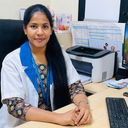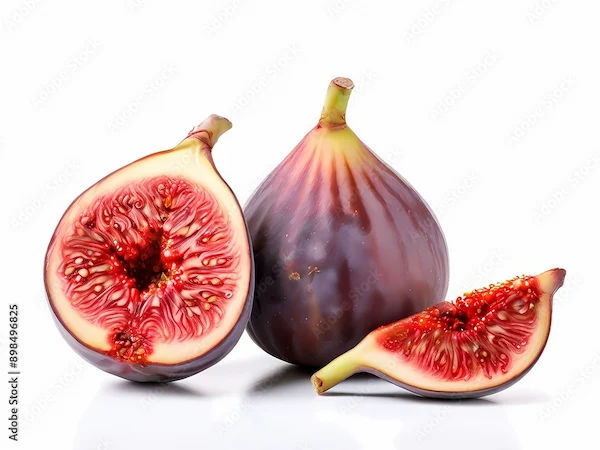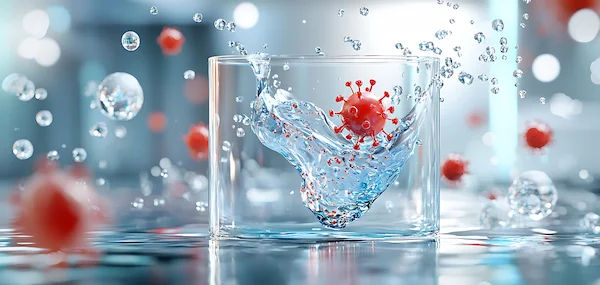Are You Drinking Enough Water? The Ultimate Guide to Hydration
Learn the importance of proper hydration, how much water you should drink daily, and tips to stay well-hydrated for optimal health.

Written by Dr. Vasanthasree Nair
Reviewed by Dr. Rohinipriyanka Pondugula MBBS
Last updated on 13th Jan, 2026

Introduction
Water is the essence of life, making up about 60% of our body weight. Yet, in the hustle of daily life, drinking enough water often falls to the bottom of our priority list. We might grab a coffee to wake up, a soda with lunch, but plain, life-sustaining water? It’s easily forgotten. But what if your afternoon slump, persistent headaches, or lackluster skin were directly linked to your hydration levels? This guide dives deep into the critical question: Are you drinking enough water? We'll move beyond the generic "eight glasses a day" advice to explore personalized needs, decode your body's signals, and provide practical, actionable strategies to ensure you're optimally hydrated for peak health and vitality. Let's unlock the power of proper hydration together.
Why is Water So Crucial for Your Health?
Water is far more than just a thirst-quencher; it's the fundamental medium for every single cellular process in your body. Think of it as the oil that keeps the engine of your body running smoothly. Without adequate hydration, these processes begin to sputter and slow down, leading to a cascade of negative effects.
The Role of Water in Bodily Functions
From a biological standpoint, water serves several non-negotiable roles. It regulates your internal body temperature through sweat and respiration. It acts as a shock absorber for your brain and spinal cord. It forms saliva, which kick-starts digestion, and it lubricates your joints, allowing for smooth, pain-free movement. Crucially, water is the vehicle that transports nutrients to your cells and flushes out waste products through urine. Your kidneys, which are master filters, require ample water to function correctly and prevent kidney stones. When you're not drinking enough water, this entire system becomes less efficient, forcing your body to work harder to perform basic tasks.
Top Health Benefits of Staying Hydrated
The benefits of maintaining optimal fluid intake are visible from your brain to your skin.
Enhanced Cognitive Performance: Even mild dehydration (a loss of 1-2% of body water) can impair concentration, alertness, short-term memory, and increase feelings of anxiety and fatigue.
Physical Performance Boost: Dehydration is the enemy of athletes. It leads to reduced endurance, increased fatigue, lower motivation, and can make exercise feel much more difficult, both physically and mentally.
Improved Digestion and Prevention of Constipation: Water helps break down food and keeps the digestive tract lubricated, ensuring smooth passage of waste. Inadequate hydration is a primary cause of constipation.
Healthier, Glowing Skin: Well-hydrated skin appears more plump, elastic, and radiant. While water won't erase wrinkles, dehydration can make your skin look drier, more wrinkled, and dull.
Headache Prevention and Relief: For many people, dehydration is a key trigger for headaches and migraines. If you feel a headache coming on, drinking a large glass of water should be your first line of defense.
Consult a Nutritionist for the best advice
How Much Water Do You Really Need Each Day?
The one-size-fits-all answer of "eight 8-ounce glasses a day" (the 8x8 rule) is easy to remember, but it's not scientifically rigorous. Your individual daily water intake needs are influenced by your weight, activity level, climate, and overall health.
A More Personalized Approach: Calculating Your Needs
A more accurate method is to calculate your needs based on your body weight. A common recommendation is to drink between 25-35 millilitres of water per kilogram of body weight. For those using pounds, a good rule of thumb is to drink half an ounce to an ounce of water for each pound you weigh.
Example: A person weighing 70 kg (154 lbs) would need:
70 kg x 30 ml = 2,100 ml (or ~2.1 litres) per day.
Example in pounds: 154 lbs x 0.5 oz = 77 oz (or ~2.3 litres) per day.
This is your baseline. You need to add more for every 30 minutes of exercise, if you live in a hot or humid climate, if you are pregnant or breastfeeding, or if you are ill (especially with a fever, vomiting, or diarrhea).
Listen to Your Body: 7 Key Signs You're Not Drinking Enough Water
Your body has a sophisticated communication system to signal its need for water. Learning to recognize these signs of dehydration is crucial.
The Tell-Tale Sign: Check Your Urine Colour
This is the simplest and most effective diagnostic tool. Aim for pale, straw-coloured urine. Dark yellow or amber urine is a clear sign that you need to drink more fluids immediately.
Beyond Thirst: Subtle Symptoms of Dehydration
Thirst is an obvious signal, but it often appears when you're already mildly dehydrated. Other symptoms to watch for include:
1. Persistent Fatigue or Sleepiness: Dehydration causes reduced blood flow to the brain and a drop in blood pressure, leading to tiredness.
2. Dry Mouth and Bad Breath: Saliva has antibacterial properties. Low water intake reduces saliva production, allowing bacteria to thrive.
3. Brain Fog: Difficulty focusing, confusion, and poor memory can all be linked to low hydration.
4. Food Cravings, Especially for Sugar: Dehydration can be misinterpreted as hunger. When you feel a sudden snack craving, try drinking water first.
5. Headaches: As mentioned, a dehydration headache is a very common phenomenon.
6. Dry, Flaky Skin: Your skin loses elasticity and moisture when dehydrated.
7. Infrequent Urination: If you're not visiting the bathroom every 3-4 hours, you're likely not drinking enough.
If you experience severe symptoms like dizziness, extreme confusion, or a very rapid heartbeat, it could indicate significant dehydration and you should seek medical attention. For persistent, less severe symptoms, consulting a doctor online with Apollo24|7 can help rule out other underlying causes.
Practical Strategies: How to Drink More Water Every Day
Building a sustainable hydration habit doesn't have to be a chore. Here are some effective tips:
Start Your Day with Water: Keep a full glass or bottle of water on your nightstand and drink it first thing in the morning.
Invest in a Good Water Bottle: A reusable bottle you love (insulated, marked with measurements, etc.) serves as a constant visual reminder.
Infuse for Flavour: Add natural flavours with slices of lemon, cucumber, mint, berries, or ginger.
Eat Your Water: Incorporate foods with high water content into your diet, like watermelon, strawberries, cucumber, celery, oranges, and spinach.
Pair with Habits: Drink a full glass of water before every meal, after every bathroom break, or at the top of every hour.
Use Technology: Set reminders on your phone or use a dedicated water tracking app.
Can You Drink Too Much Water? Understanding Hyponatraemia
While rare for the average person, it is possible to drink too much water too quickly, a condition known as hyponatraemia or water intoxication. This occurs when the kidneys can't excrete the excess water, diluting the sodium in your bloodstream to dangerously low levels, which can cause cells to swell. This is a serious medical emergency. It's most common among endurance athletes who drink excessive amounts of water without replacing electrolytes. The key is to drink consistently throughout the day rather than chugging enormous volumes at once, and to ensure you're replenishing electrolytes during intense, prolonged exercise.
Conclusion: Making Hydration a Lifelong Habit
Understanding whether you're drinking enough water is one of the most powerful and simple steps you can take for your long-term health. It's not about obsessively counting every ounce, but about developing a mindful awareness of your body's needs. By personalizing your intake goals, recognizing the subtle signs of dehydration, and incorporating simple habits into your routine, you can support your energy levels, cognitive function, physical performance, and overall well-being. Remember, hydration is a daily practice, not a one-time fix. Start today by pouring yourself a glass of water; your body will thank you for it for years to come.
Consult a Nutritionist for the best advice
Consult a Nutritionist for the best advice
Dr Sumanth R
General Physician
2 Years • MBBS
Bengaluru
PRESTIGE SHANTHINIKETAN - SOCIETY CLINIC, Bengaluru

Dr. Ramalinga Reddy
General Physician
5 Years • MBBS MD General medicine
Bengaluru
PRESTIGE SHANTHINIKETAN - SOCIETY CLINIC, Bengaluru

Dt. Prabhavathy
Clinical Nutritionist
8 Years • Msc Human Nutrition & Nutraceuticals
Madurai
Apollo Sugar Clinics, Madurai, Madurai
Dt. Ila Sharma
Clinical Nutritionist
18 Years • Master in food & Nutrition
Gurugram
VIPUL GREENS - SOCIETY CLINIC, Gurugram
Ms. Bhavana Shetty
Dietician
7 Years • DDHN & Masters in Clinical Nutrition & Dietetics
Bangalore
Apollo Sugar Clinic, Seetha circle bangalore, Bangalore
More articles from General Medical Consultation
Frequently Asked Questions
1. Does coffee and tea count towards my daily water intake?
Yes, in moderation. While caffeine has a mild diuretic effect, the water in coffee and tea still contributes to your overall fluid balance. However, plain water should remain your primary source of hydration.
2. What are the best times to drink water for maximum benefit?
Key times include: right after waking up, before meals (can aid in feeling fuller), before and during exercise, and when you feel tired or have a headache.
3. I struggle to drink plain water. What are good alternatives?
Sparkling water, unsweetened herbal teas, and water infused with natural fruits and herbs are excellent alternatives. Focus on avoiding sugary sodas and juices.
4. How does ageing affect hydration needs?
As we age, our sense of thirst diminishes, making older adults more susceptible to dehydration. It becomes crucial for them to drink water regularly on a schedule, not just when they feel thirsty.
5. Can drinking more water help with weight loss?
Yes, it can support weight loss efforts. Water can increase feelings of fullness, boost your metabolic rate slightly, and is a zero-calorie replacement for high-calorie sugary drinks.




